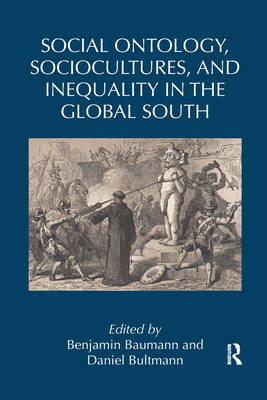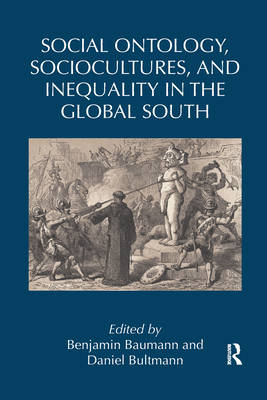
- Afhalen na 1 uur in een winkel met voorraad
- Gratis thuislevering in België vanaf € 30
- Ruim aanbod met 7 miljoen producten
- Afhalen na 1 uur in een winkel met voorraad
- Gratis thuislevering in België vanaf € 30
- Ruim aanbod met 7 miljoen producten
Social Ontology, Sociocultures, and Inequality in the Global South
Omschrijving
Challenging the assumption that the capitalist transformation includes a radical break with the past, this edited volume traces how historically older forms of social inequality are transformed but persist in the present to shape the social structure of contemporary societies in the global South.
Each social collective comprises an interpretation of itself - including the meaning of life, the concept of a human person, and the notion of a collective. This volume studies the interpretation that various social collectives have of themselves. This interpretation is referred to as social ontology. All chapters of the edited volume focus on the relation between social ontology and structures of inequality. They argue that each society comprises several historical layers of social ontology that correspond to layers of inequality, which are referred to as sociocultures. Thereby, the volume explains why and how structures of inequality differ between contemporary collectives in the global South, even though all of them seem to have similar structures, institutions, and economies.
The volume is aimed at academics, students and the interested public looking for a novel theorization of social inequality pertaining to social collectives in the global South.
Specificaties
Betrokkenen
- Uitgeverij:
Inhoud
- Aantal bladzijden:
- 252
- Taal:
- Engels
- Reeks:
Eigenschappen
- Productcode (EAN):
- 9781032172651
- Verschijningsdatum:
- 13/12/2021
- Uitvoering:
- Paperback
- Formaat:
- Trade paperback (VS)
- Afmetingen:
- 156 mm x 234 mm
- Gewicht:
- 358 g

Alleen bij Standaard Boekhandel
Beoordelingen
We publiceren alleen reviews die voldoen aan de voorwaarden voor reviews. Bekijk onze voorwaarden voor reviews.










